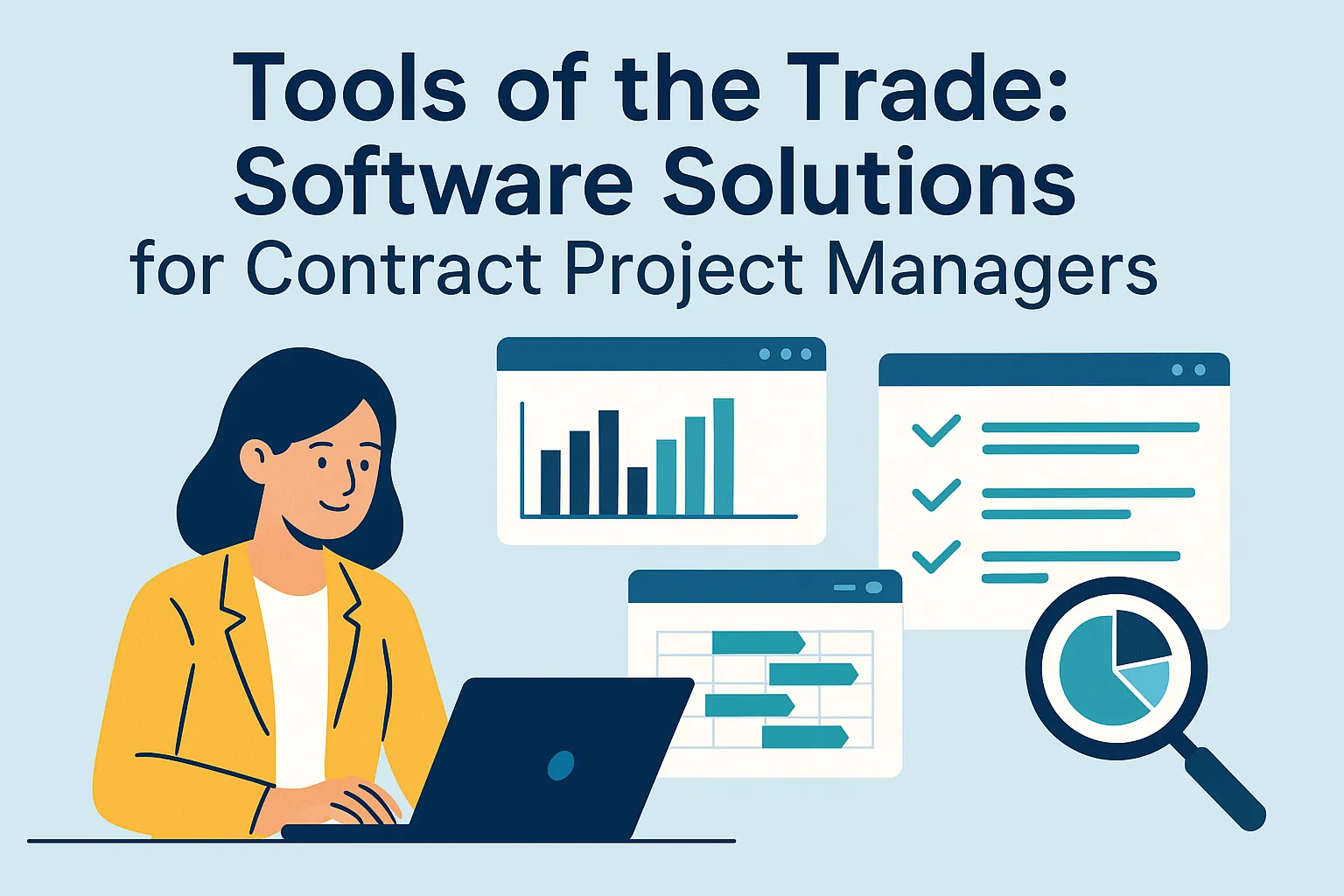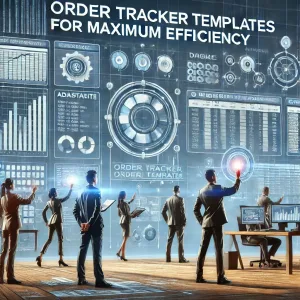Introduction
Contract project management plays a pivotal role in ensuring that projects are executed smoothly and within the agreed-upon terms. This specialized area focuses on the creation, negotiation, execution, and monitoring of contracts, which are legally binding agreements that outline the obligations and expectations of all parties involved. A contract project manager is responsible for overseeing these processes, ensuring compliance with contractual terms, and mitigating risks associated with contract execution.
The role of a contract project manager is multifaceted. These professionals not only manage the contractual obligations but also serve as a bridge between stakeholders, ensuring that all parties are aligned and informed throughout the project lifecycle. They are tasked with analyzing contract documents, negotiating terms, and addressing any disputes that may arise, all while maintaining a focus on project goals and timelines. Effective contract management is crucial, as studies indicate that projects with robust contract management practices are significantly more likely to finish on time and within budget, highlighting the importance of this role in project success [11].
In today’s fast-paced business environment, the importance of software solutions in contract management cannot be overstated. Modern contract management software automates routine tasks, streamlines workflows, and enhances collaboration among team members. By leveraging these tools, contract project managers can reduce manual effort, minimize errors, and focus on strategic activities that drive project success. The integration of technology into contract management processes not only improves efficiency but also provides real-time insights into contract performance, enabling better decision-making [2][13].
The evolution of contract management tools has transformed the landscape of project management. From traditional paper-based systems to sophisticated digital platforms, the journey has been marked by significant advancements in technology. Today’s software solutions offer features such as automated contract creation, electronic signatures, and comprehensive reporting capabilities, making it easier for contract project managers to navigate the complexities of contract management. As the industry continues to evolve, staying informed about the latest software tools is essential for project managers and business owners looking to enhance their contract management practices and achieve greater project success.
Key Challenges Faced by Contract Project Managers
Contract project managers play a crucial role in ensuring that contracts are effectively managed throughout their lifecycle. However, they encounter several challenges that can hinder their efficiency and effectiveness. Here are some of the key challenges faced by contract project managers:
- Complexity in Contract Creation and Negotiation: The process of drafting and negotiating contracts can be intricate, often involving legal jargon and specific terms that require careful consideration. This complexity can lead to misunderstandings and disputes if not managed properly. Contract managers must navigate these complexities while ensuring that all parties are aligned on the terms and conditions of the agreement [1][11].
- Difficulty in Tracking Contract Compliance and Deadlines: Ensuring that all parties adhere to the terms of the contract is a significant challenge. Contract project managers must monitor compliance with various obligations, such as deliverables, payment schedules, and performance metrics. Additionally, keeping track of deadlines is critical, as missed deadlines can result in financial penalties or damaged relationships [10][14].
- Managing Multiple Contracts Simultaneously: Contract project managers often juggle multiple contracts at once, each with its own set of requirements and stakeholders. This can lead to confusion and oversight if not managed effectively. The administrative burden of handling numerous contracts can also result in inefficiencies and errors, making it essential for managers to have robust systems in place to keep everything organized [6][10].
- Ensuring Clear Communication Among Stakeholders: Effective communication is vital in contract management, as it involves various stakeholders, including clients, suppliers, and internal teams. Miscommunication can lead to delays, disputes, and a lack of clarity regarding responsibilities. Contract project managers must facilitate open lines of communication to ensure that everyone is informed and aligned throughout the contract lifecycle [2][15].
By understanding these challenges, contract project managers can better prepare themselves to implement effective strategies and leverage software solutions that streamline their processes, enhance compliance, and improve overall contract management efficiency.
Essential Features of Contract Management Software
For contract project managers, the right software tools can significantly enhance efficiency and effectiveness. As businesses increasingly rely on digital solutions, understanding the essential features of contract management software becomes crucial. Here are the key functionalities that these tools should offer:
- User-Friendly Interface: A software solution must have an intuitive and user-friendly interface that allows project managers and team members to navigate easily. This feature minimizes the learning curve and ensures that users can quickly access the functionalities they need without extensive training [4][12].
- Document Management Capabilities: Effective contract management software should provide robust document management features. This includes the ability to store, organize, and retrieve contracts efficiently. A centralized repository ensures that all contract documents are easily accessible, reducing the risk of misplacement and enhancing compliance [4][11].
- Automated Reminders for Key Dates and Milestones: To keep projects on track, automated reminders for critical dates such as contract renewals, deadlines, and milestones are essential. This feature helps contract project managers stay proactive, ensuring that no important deadlines are missed, which can lead to costly delays or penalties [3][12].
- Collaboration Tools: Given that contract management often involves multiple stakeholders, collaboration tools are vital. These features facilitate seamless communication among team members, allowing for real-time updates, discussions, and document sharing. This enhances teamwork and ensures that everyone is on the same page throughout the contract lifecycle [4][15].
- Analytics and Reporting Features: To assess contract performance and make informed decisions, analytics and reporting capabilities are crucial. These features allow project managers to track key performance indicators (KPIs), analyze trends, and generate reports that provide insights into contract effectiveness. This data-driven approach supports strategic planning and helps identify areas for improvement [4][12].
Top Software Solutions for Contract Project Managers
When it comes to handling contracts, having the right software tools can significantly enhance efficiency and effectiveness. Here’s a review of some of the latest software solutions that cater specifically to the needs of contract project managers:
- ContractWorks: ContractWorks is designed with features that streamline contract tracking and management. It offers a centralized contract repository, smart tagging for easy document search, and automated reminders to ensure deadlines are met. This software is particularly beneficial for teams looking to improve contract visibility and reduce risks associated with contract management [10][12].
- DocuSign CLM: Known for its robust e-signature capabilities, DocuSign CLM (Contract Lifecycle Management) extends beyond just signing documents. It provides comprehensive lifecycle management features that help organizations manage contracts from creation through to execution and renewal. This tool is ideal for businesses that prioritize secure and efficient contract signing processes [2][10].
- Agiloft: Agiloft offers customizable contract management solutions that cater to various industries. Its flexibility allows organizations to tailor the software to their specific needs, making it suitable for businesses of all sizes. Agiloft’s features include automated workflows, contract templates, and reporting tools, which enhance the overall contract management process [10][15].
- Icertis: Icertis is an enterprise-level contract management solution that addresses complex contract management needs. It provides advanced features such as AI-driven insights, compliance tracking, and integration capabilities with other enterprise systems. This software is particularly beneficial for large organizations that require a comprehensive approach to contract management [10][15].
- Conga Contracts: Conga Contracts integrates seamlessly with Salesforce, making it a powerful tool for sales teams. It focuses on automation, allowing users to streamline contract creation, approval, and management processes. This integration not only enhances productivity but also ensures that contract management aligns closely with sales operations [4][10].
These software solutions represent some of the best tools available for contract project managers today. By leveraging these technologies, project managers can enhance their contract management processes, ensuring that they remain organized, compliant, and efficient in their operations.
Comparative Analysis of Features and Pricing
Selecting the right software can significantly enhance efficiency and effectiveness. Below is a comparative analysis of various contract management software solutions, focusing on their features, pricing models, value for money, and user feedback.
Comparison Chart of Features
| Software Solution | Centralized Repository | Role-based Access | AI-driven Data Extraction | Redlining | Digital Signature | Integration Capabilities |
| ProjectManager | Yes | Yes | No | Yes | Yes | Yes |
| CLM Software | Yes | Yes | Yes | Yes | Yes | Yes |
| Contract Management Tool | Yes | Yes | No | Yes | Yes | Limited |
- Centralized Repository: All solutions provide a secure, centralized location for contract storage, which is essential for easy access and management.
- Role-based Access: This feature is crucial for maintaining security and ensuring that only authorized personnel can view or edit contracts.
- AI-driven Data Extraction: Some tools leverage AI to streamline data extraction, enhancing efficiency in contract management.
- Redlining: The ability to track changes and collaborate on contract edits is available in most solutions, facilitating smoother negotiations.
- Digital Signature: All highlighted software supports digital signatures, which is vital for modern contract execution.
- Integration Capabilities: While most tools offer integration with other software, some may have limited options.
Pricing Models
- Subscription-Based: Many software solutions operate on a subscription model, allowing users to pay monthly or annually. This model often includes regular updates and support.
- One-Time Payment: Some tools may offer a one-time payment option, which can be more cost-effective in the long run but may lack ongoing support and updates.
Value for Money
When evaluating value for money, consider the following:
- Feature Set: Assess whether the features offered align with your specific needs. For instance, if AI-driven data extraction is crucial for your operations, prioritize software that includes this feature.
- Scalability: Choose software that can grow with your business. Subscription models often provide flexibility to scale up or down based on your needs.
- User Support: Evaluate the level of customer support provided. Good support can save time and resources in the long run.
User Reviews and Ratings
User feedback is invaluable in assessing the credibility and effectiveness of contract management software. Here are some insights:
- ProjectManager: Users appreciate its intuitive interface and robust project management features, although some note that it could benefit from more advanced contract-specific tools.
- CLM Software: Highly rated for its comprehensive features and AI capabilities, users often highlight its efficiency in managing complex contracts.
- Contract Management Tool: While it offers essential features, some users feel it lacks depth in integration options compared to competitors.
Best Practices for Implementing Contract Management Software
Implementing contract management software is a critical step for project managers aiming to streamline their processes and enhance efficiency. Here are some actionable tips to ensure a successful implementation:
- Assess Organizational Needs: Before selecting a contract management software, it is essential to conduct a thorough assessment of your organization’s specific needs. Identify the pain points you want to address, such as bottlenecks in approval processes or compliance issues. Prioritize the features that will best serve your organization, ensuring that the chosen software aligns with your operational goals and enhances existing workflows [2][7].
- Training Team Members: Once the software is selected, comprehensive training for team members is crucial. This training should cover not only the basic functionalities of the software but also how it integrates into their daily tasks. Effective training can help overcome resistance to change and ensure that all users are comfortable and proficient with the new system, ultimately leading to better adoption rates [10][11].
- Integrate with Existing Systems: To maximize the benefits of contract management software, it should be integrated with your existing systems and processes. This integration helps in maintaining continuity and ensures that data flows seamlessly between different platforms. It is important to work closely with IT and relevant departments to facilitate this integration, which can significantly enhance the overall efficiency of contract management [1][11].
- Regularly Review Software Performance: After implementation, it is vital to regularly review the software’s performance and features. This ongoing evaluation allows project managers to identify any issues, assess user satisfaction, and determine if the software continues to meet organizational needs. Regular reviews can also highlight areas for improvement and ensure that the software evolves alongside the organization [10][12].
By following these best practices, project managers can effectively implement contract management software, leading to improved efficiency, reduced costs, and enhanced compliance within their organizations.
Future Trends in Contract Management Software
As the landscape of project management continues to evolve, contract management software is becoming increasingly sophisticated, driven by technological advancements and changing business needs. Here are some key trends that are shaping the future of contract management software, particularly for contract project managers:
- The Rise of AI and Machine Learning for Predictive Analytics: Artificial Intelligence (AI) and machine learning are revolutionizing contract management by enabling predictive analytics. These technologies allow project managers to analyze historical contract data to forecast potential risks and outcomes, thereby facilitating more informed decision-making. AI can process large volumes of contracts quickly, automate routine tasks, and identify risks, making it an invaluable tool for contract project managers [2][7].
- Increased Emphasis on Security and Data Protection: As businesses handle sensitive information, the importance of security and data protection in contract management software cannot be overstated. Companies are increasingly prioritizing solutions that offer robust security features to safeguard confidential data. This trend is driven by the need to comply with stringent regulations and to protect against data breaches, ensuring that contract information remains secure throughout its lifecycle [8][10].
- Integration with Blockchain Technology for Contract Verification: Blockchain technology is emerging as a key player in contract management, providing transparency, security, and traceability. By integrating blockchain into contract management systems, organizations can create immutable records of contractual changes and decisions, enhancing trust and accountability. This technology not only streamlines the verification process but also reduces the risk of fraud, making it a critical component for future contract management solutions [4][13].
- The Growing Importance of Mobile Accessibility and Cloud Solutions: In an increasingly mobile world, the demand for contract management software that is accessible on-the-go is rising. Mobile applications enable project managers to review, approve, and collaborate on contracts from their smartphones or tablets, improving efficiency and facilitating real-time collaboration among team members, regardless of their location. Additionally, cloud-based solutions are becoming essential, allowing for seamless access to contract data and documents from anywhere, thus enhancing flexibility and productivity [1][11].
These trends indicate a significant shift towards more intelligent, secure, and accessible contract management solutions. As technology continues to advance, contract project managers must stay informed about these developments to leverage the full potential of contract management software in their projects.
Conclusion
Particularly for contract project managers, the selection of appropriate contract management software is crucial. The right tools not only streamline processes but also enhance efficiency, reduce errors, and ensure compliance with contractual obligations. As highlighted throughout this discussion, effective contract management is integral to the success of any project, especially in industries where clarity and accountability are paramount [1][2].
As you consider your options, it is essential to assess your specific needs. Different projects may require varying functionalities, such as real-time budget tracking, automated invoicing, or robust reporting capabilities. By identifying what features are most beneficial for your unique circumstances, you can make a more informed decision when selecting software [3][12].
Moreover, many software providers offer demos or trial periods, allowing you to explore their solutions firsthand. This hands-on experience can be invaluable in determining which tool aligns best with your workflow and project requirements [10][13].
In conclusion, investing time in choosing the right contract management software can significantly impact your project’s success. Embrace the opportunity to explore these tools and enhance your contract management processes.
Find out more about Shaun Stoltz https://www.shaunstoltz.com/about/.
This post was written by an AI and reviewed/edited by a human.



